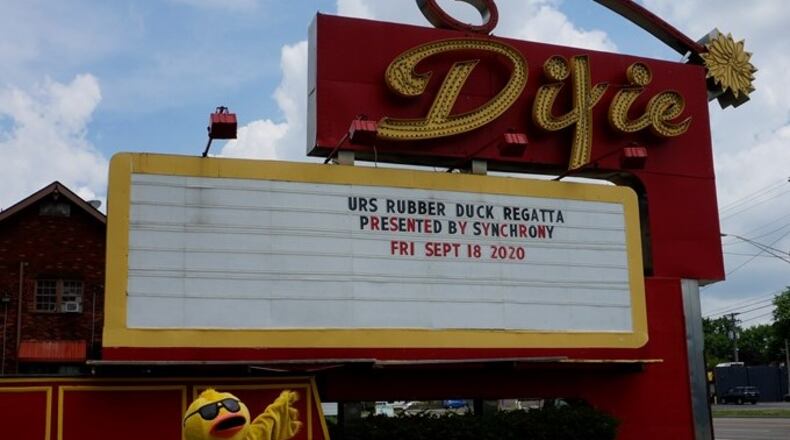“We closed on March 16 and spent the next two weeks fully sanitizing the entire building with 40 of our staff,” Grant said. “And we also sanitized our vehicles.”
Grant applied for a temporary pandemic childcare license and in early April, URS reopened, offering small group activities programs for adults and reduced capacity childcare.
“We were getting calls from people who were desperate and needed help,” Grant said. “We were limited to a maximum of six kids in a classroom with two staff each.”
At first, Grant said URS worked to prioritize a system for accepting children for care, focusing on nurses, doctors and first responders. Eventually, though, the agency could expand the program and open more classrooms for children and adults.
Credit: CONTRIBUTED
Credit: CONTRIBUTED
On June 1, the Ohio childcare centers were officially reopened, but all had restrictions. According to Grant, regulations allow about half as many children in a room as were permitted prior to the pandemic.
“Our costs are almost double, and we are getting half as much revenue right now,” Grant said. “We don’t see this changing anytime soon, especially with the surge of COVID-19 cases.”
Transportation of adults and children have also been restricted with the six-foot social distancing requirement. Often 15 passenger vans are carrying two to three people at one time, significantly increasing costs to the agency.
URS was able to continue to offer some services, like telehealth with six therapists and 100 patients who could continue their occupational and speech therapies during the shutdown.
“The only way we offer these services was by establishing a strict protocol of screening staff when they arrive,” Grant said. “We take temperatures of everyone when we pick up and drop off and ask family members about exposure and symptoms.”
Credit: CONTRIBUTED
Credit: CONTRIBUTED
With no sign of public gathering regulations abating before the end of the year, Grant and URS Development Director Vivian O’Connell were forced to either abandon URS’ single largest fundraiser, the Rubber Duck Regatta, or transform it so it could still be held this year.
“RiverScape made the decision to not issue permits through September and we knew then we couldn’t do the usual duck drop in the river downtown,” O’Connell said. “We started thinking about ways we could still have our event with all the restrictions.”
Grant and O’Connell brainstormed and came up with a hybrid virtual and in-person event. And on Sept. 18, URS will be hosting its annual Rubber Duck Regatta, presented by Synchrony, at the Dixie Twin Drive-In in Harrison Twp.
“It’s a real event with real people,” O’Connell said. “There will be people coming to the drive-in and we will be showing the program we usually have along with a drone video of the duck drop from a few years ago.”
Winning ducks will still be chosen, but at random through a computer drawing, and winners will be announced live that night. In addition, two movies will be shown to attendees after the event is over – “How to Train Your Dragon,” and “Back to the Future.” Concession stands will also be open.
“Because most of the local summer festivals have been canceled, we won’t be able to sell as many ducks,” O’Connell said. “In previous years, people would adopt ducks in person all summer long, but we will be relying on digital and online sales this year.”
The event also has a $5 admission fee for ages 5 and older, which includes the event and the movies. Six prizes will be given away during the event and people may adopt ducks in advance for $5 each or in a “Quack Pack” of six ducks for $25.
“Overall, as an agency, we are very proud that $9 out of every $10 goes directly to our mission,” said Grant. “This is thanks to our sponsors and donors who are working to help organizations like ours survive during this time.”
For more information, visit DaytonDucks.com
About the Author

